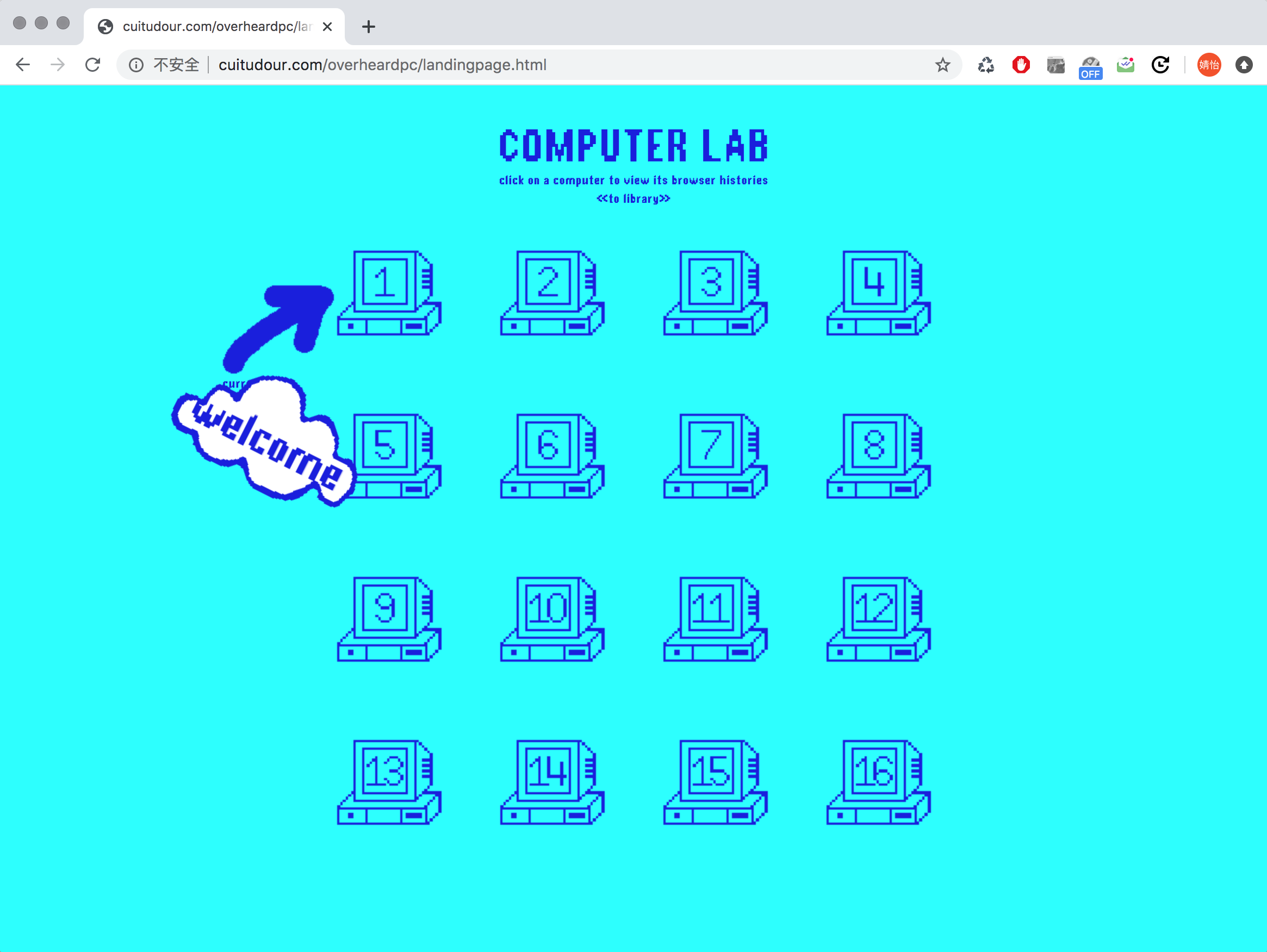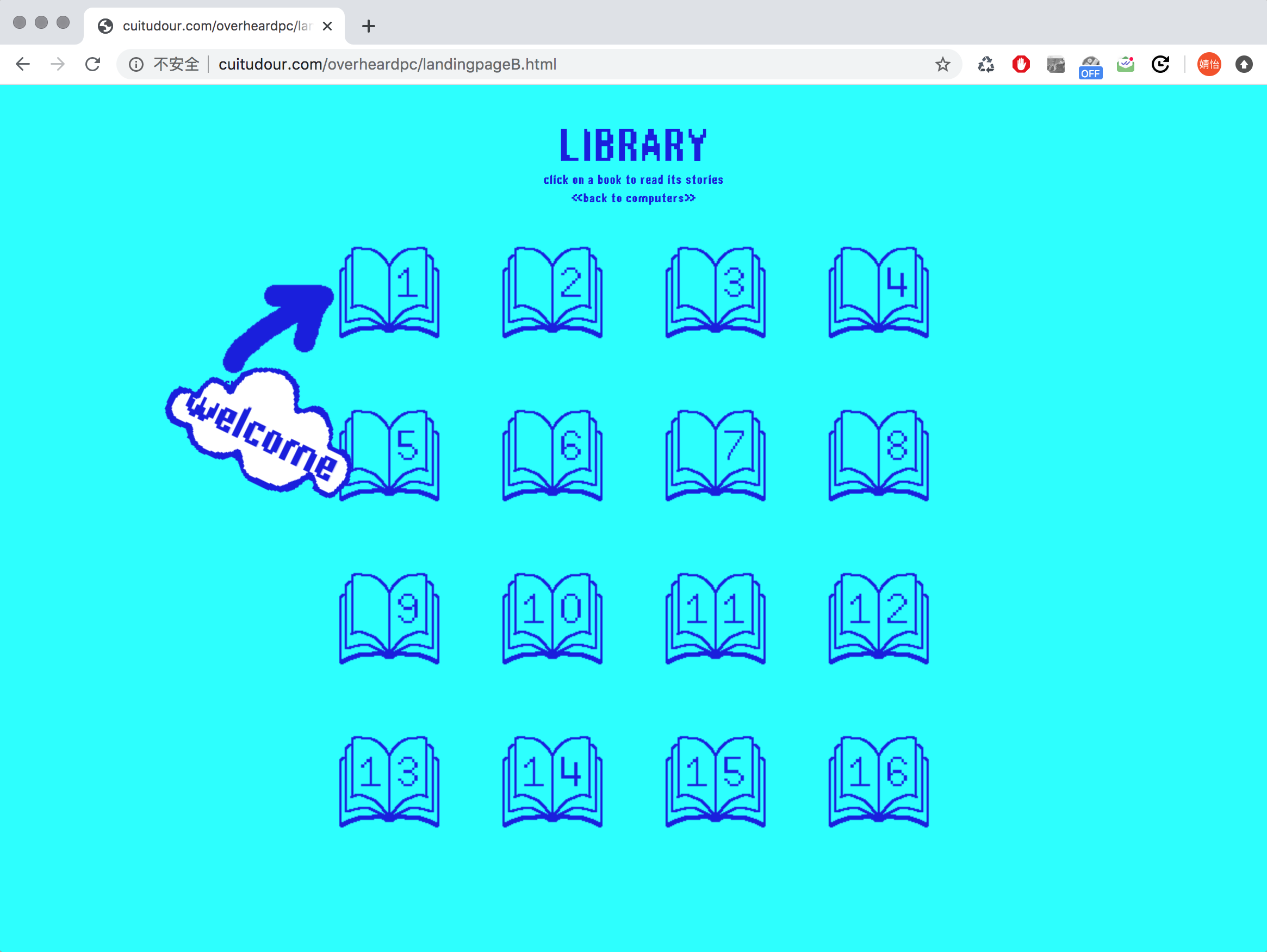


Overheard Public Computers
The inspiration for this project comes from the format of collecting and recording conversations overheard in public on web platforms (e.g. @overheardlondon on instagram, r/overhearinpublic on reddit, @偷听bot on weibo, metropolitan diary series on the new york times website). If we treat public computers as an urban plaza of sorts, then the conversations that happen within this virtual space are easily found on internet browsers and “overheard” through browser histories.
Overhearing and reading snippets of other people’s lives can be a joyful encounter, allowing us to stumble by chance into other people’s worlds for a brief moment. But we are not our data, and like the conversations we hear in public, our browser histories can only offer at best a glimpse into our lives, not our entire identity. Scrolling through Google’s user ads settings page will quickly reveal that even a tech conglomerate like Google cannot guess every aspect of our lives and identity correctly. Yet our online presence is continuously evaluated by companies who process our data as us in our entirety, and in turn using our data for marketing and capital gains.
By creating a webpage that allow visitors to scroll through selected browser histories found on public computers, and create their own “overheard” moments, this project hopes to provide a humanistic approach to looking at and experiencing other people’s information as well as offering a comparison to the dull algorithmic process of data collection that websites undertake to make assumptions about its users.
Project live demo: LINK
Interactive Webpage, Data Visualization.
I had just finished building the framework for the site when lockdown started in London early 2020, and therefore lost access to the actual public computers needed to collect data. By the time London's (many) lockdown(s) lifted, I lost the enthusiam to continue on with this exploration, so this project is recorded here in all of its incomplete-ness...
:(




